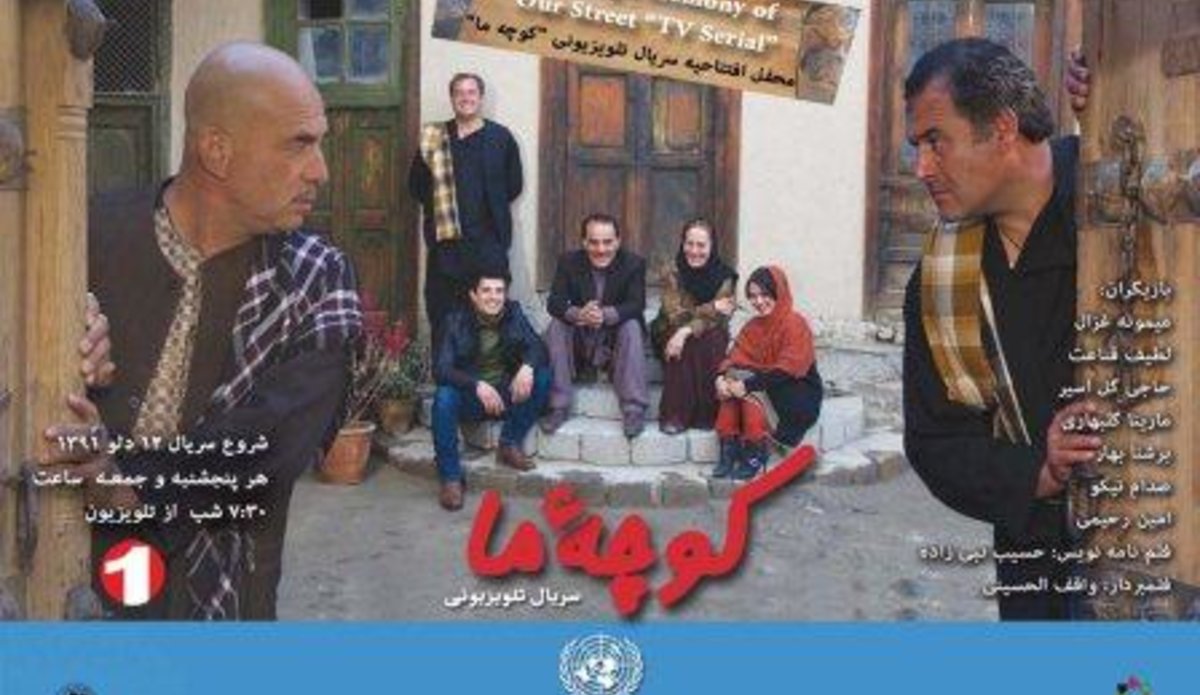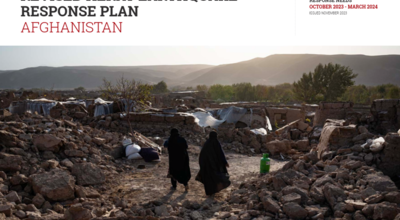UNAMA-supported television series premiered in Kabul
KABUL - A 15-part television series, Kocha-e-Ma (Our Street), that tells the story of real life in Afghanistan in an imaginary area of old Kabul, was premiered in Kabul yesterday.
The private channel, One TV (or “Yak TV”) will start the broadcast of the UNAMA-supported series on 31 January and will hit the airwaves twice a week.
Yesterday’s premiere in the jam-packed Afghan Film Hall in Kabul saw screening of the first two episodes of the series, which is directed and produced jointly by the New Wave Cinema the Directorate of Afghan Films.
Speaking at the premiere, international award winning filmmaker Mirwais Rakab, who directed the Kocha-e-Ma series, said the serial would tell stories of old and new cultures of Afghanistan. Another prize winning director Siddiq Barmak advised both UNAMA and the production team on this series.
Although Afghan TV channels broadcast Turkish and Indian serials, the Kocha-e-Ma series is one of a few fully Afghan-made productions that are high quality.
The communications director of UNAMA, Massoumeh Torfeh, hoped that the TV series would encourage debate and discussion as it tries to tackle serious everyday problems in today’s Afghanistan. The story line would also offer solutions.
“One of my longstanding dreams has come true today,” said Ms. Torfeh, referring to the launch of the serial. She said she believed media and culture could play an effective role in seeking solution to the complex set of issues in Afghanistan.
“Media are doing a fantastic job in highlighting and debating political issues. The serial will bring to the fore more cultural and social aspects of life,” she said. “Discussing the problems of people within the framework of a visual story is far more effective.”
Speaking on the occasion, Afghanistan’s Deputy Minister for Information and Culture, Sayed Mosadiq Khalili, said such TV series was quite heartening because it considered identity and values of the Afghan culture.
“Such serials will help us stop the torrent of foreign serials in our television channels, which don’t represent the Afghan society and people,” said Mr. Khalili.
The first episode has the story of an Afghan family returning from Pakistan where they lived the life of refugee. But, upon their return, they find their house occupied by another family and seek refuge in the house of a neighbour. Some conmen try to convince the family to give up the idea of taking back the house. The reason: a foreign national had concealed an ancient artifact underneath the house long ago and the conmen are trying to unearth the artifact.
The later events in the serial have been professionally filmed in a way to attract the attention of viewers through brilliant camera work, set designing, selection of characters, logical consistency of the story and role play by different characters.
The serial will cover topics such as life of returnees, unemployment, violence against women, inclusive political process, mistreatment of children, all of which are central to UNAMA’s mandate so that it spurs on debate and discussion in the society while at the same time offering solutions.
Mr. Barmak later told UNAMA that through this serial, “Afghan people can see their own faces, problems, suffering, happiness, anger – all angles of their life”.
There are three writers of the serial in all, but the first episodes were written by Haseeb Nabi Zada. Waqiful Hussaini did the video shooting.
Internationally renowned artist, Marina Gulbahari, who played the central role in the globally famous film “Osama”, produced by Mr. Barmak, also plays in the UNAMA-supported TV series.
Other artists include Haji Gul Aseer, Maimona Ghizal, Latif Qinaat, Asad Tajzai and Amin Rahimi.
By UNAMA Kabul
 UN
UN








